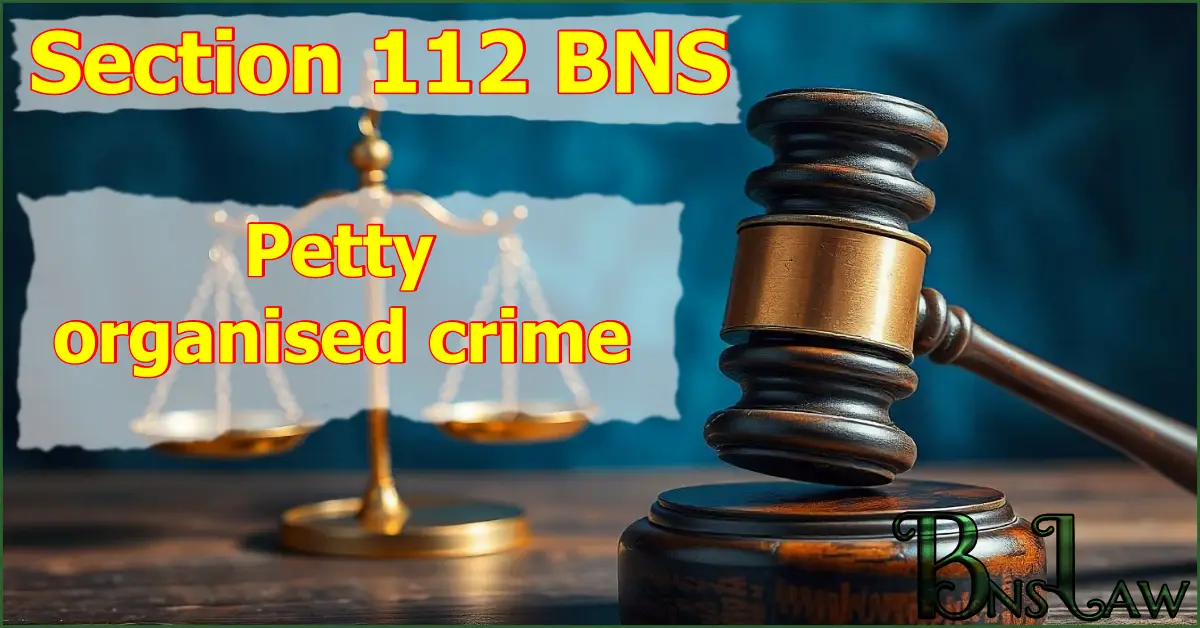Section 112 BNS | BNS 112
112(1) BNS
Whoever, being a member of a group or gang, either singly or jointly, commits any act of theft, snatching, cheating, unauthorised selling of tickets, unauthorised betting or gambling, selling of public examination question papers or any other similar criminal act, is said to commit petty organised crime.
Explanation— For the purposes of this sub-section “theft” includes trick theft, theft from vehicle, dwelling house or business premises, cargo theft, pick pocketing, theft through card skimming, shoplifting and theft of Automated Teller Machine.
112(2) BNS
Whoever commits any petty organised crime shall be punished with imprisonment for a term which shall not be less than one year but which may extend to seven years, and shall also be liable to fine.
READ OTHER SECTIONS OF CHAPTER VI — OF OFFENCES AFFECTING THE HUMAN BODY
FAQs of BNS Section 112
-
112 BNS punishment and fine
Punishment and fine under Section 112 of the BNS: Imprisonment for not less than 1 year but which may extend to 7 years and fine.
-
112 BNS cognizable or not
The offence under Section 112 of the BNS is cognizable.
-
112 BNS bailable or not
The offence under Section 112 of the BNS is non-bailable.
-
112 BNS trial court
Offence specified in Section 112 of the BNS is triable by the Magistrate of the first class.
Important Points
- Cognizable Offences: These are offences where a police officer can arrest a person without a warrant.
- Non-Cognizable Offences: These are offences where a police officer cannot arrest a person without a warrant.
- Bailable Offences: These are offences where the accused can get bail from the police station itself. All bailable offences are listed in the First Schedule of the Bharatiya Nagarik Suraksha Sanhita (BNSS).
- Non-Bailable Offences: Offences in which bail is not granted directly from the police station but after hearing the case in the court, the judge decides when bail will be granted. All non-bailable offences are listed in the first schedule of the Bharatiya Nagarik Suraksha Sanhita (BNSS).
- In the above FAQ, “trial court” means the court that has jurisdiction to try the offence.
- In the above FAQ, the expression “Magistrate of the first class” and “Any Magistrate” does not include Executive Magistrates.
Read other Sections of the BNS
Reference Link: New Criminal Laws (BNS), Ministry of Home Affairs







